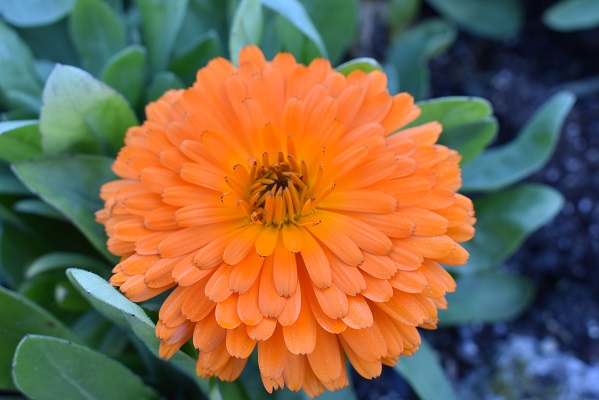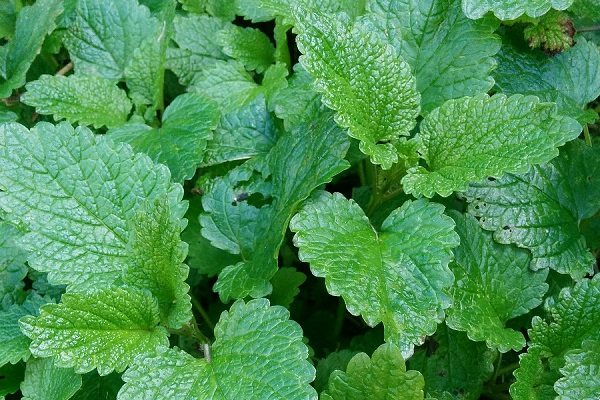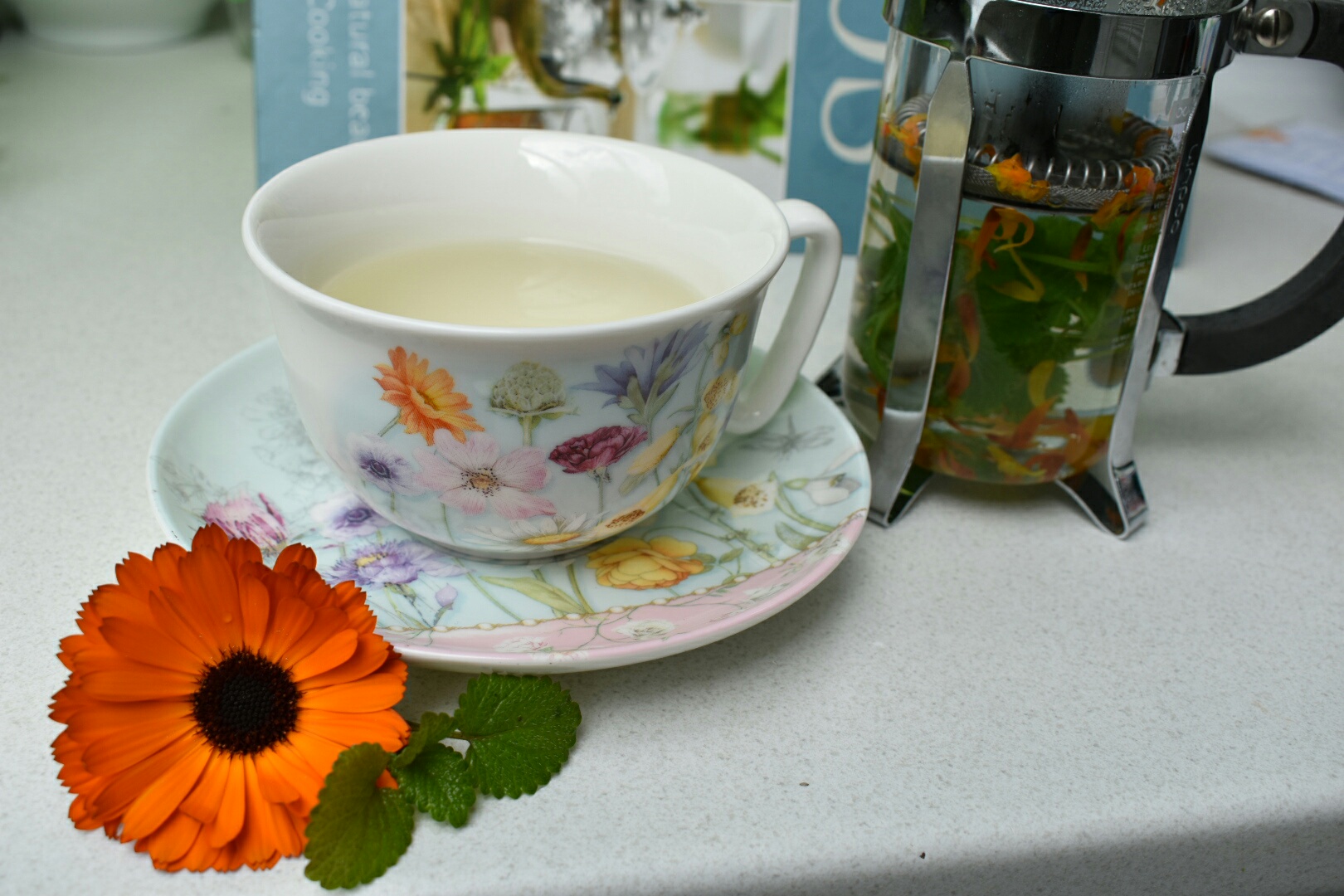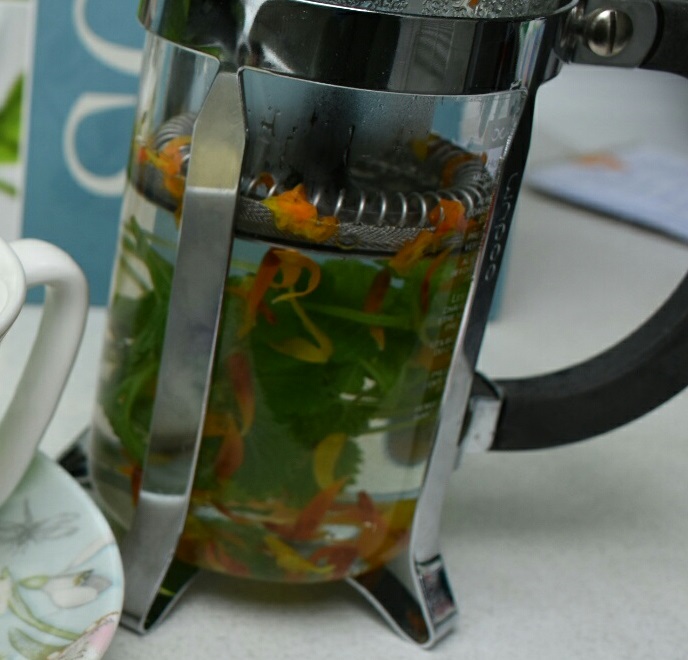It is undeniable – there’s an undercurrent rising in the soil, teasing seeds awake, nudging dormant perennial roots, and tickling growth buds on shrubs and trees. It’s the feeling of spring, and although the Lady herself (whether you name her Ēostre, Flora, Yarylo, Thallo, or Persephone) has not yet arrived in all her splendor, the garden is getting ready for her grand entrance.
This means the lemon balm is pushing out beautiful new fresh green growth! And that the calendula are flowering (at least a bit more profusely than they have been – I’ve been lucky to have had a golden bloom every now and then through parts of winter).


Perfect little plants to welcome in springtime. And a great way to tune yourself to this renewal of life, is to enjoy garden fresh lemon balm and calendula tea.
Alluding to their use as medicinal plants are their Latin epithets, “officinalis” denoting substances or organisms – mainly plants – with uses in medicine and herbalism. Lemon Balm = Melissa officinalis; Calendula = Calendula officinalis

The tea “recipe”
A quick and simple infusion to make, add a handful of fresh lemon balm leaves with the petals of a few calendula (or one large bloom) and steep in just-boiled water for a couple of minutes. The blend is soothing and calming, but also awakening, gently working on your body systems to get you ready for the busy-ness of spring and summer. It is also lovely to have on hand as a cold tea on those hot summer days to follow.
What are the benefits of lemon balm?
Used since the Middle Ages, Melissa, is a gentle but hard-working herb. In some circles it is known as the Life Herb, promoting longevity and good health, while others call it the Happy Herb, because it has a positive effect on mood. Scientific studies seem to concur with these age-old beliefs, and lemon balm is the subject of trials to improve sleep, reduce anxiety and heal wounds.
It is said to protect the liver, and is of particular interest to those investigating heart health as it seems to be very effective in regulating the heart’s electrocardiac rhythms. Powerfully anti-oxidant and anti-inflammatory, lemon balm is also strongly antibacterial and anti-fungal (it makes a super lip balm for cold sores!). As a herb for the nervous system, and brain function, it effectively treats anxiety and soothes insomnia, enhances mood, lifts depression, increases cognitive function, calms hyperactivity and increases concentration.
Quite an amazing package of health this little unassuming herb is!
What is even more wonderful is that it also tastes great – with a lovely lemon fragrance and a sweet herbal taste. It is also gentle enough that even really young children and the elderly can benefit from drinking lemon balm tea, or using lemon balm ointments on sores.
What are the benefits of calendula?
Calendula, or pot marigold as it is sometimes called, is well known as a skin-healing herb and many products, even commercial ones, contain calendula for its reputed positive effects on the skin. It heals and soothes insect bites, stings, sprains, wounds and scrapes and burns. It is also an effective wash for sore eyes, and gargle for mouth ulcers.
Although not as commonly used internally, calendula is a nutritious food too. Even the leaves are edible, and are sometimes compared to dandelion leaves in the number of vitamins and minerals they contain. The flower is great to add to salads, or even stews and soups, you can steam it with rice, or use it to decorate baked goods. I’ve even made calendula-streaked open-faced lasagna before.
Medicinally, the calendula flower is cleansing and detoxifying, working on the lymphatic system and digestive system. It tones up the circulation and is stimulating to the immune system. The flower is also antibacterial and anti-fungal, making calendula a good tea for times of cold and flu. The list of benefits of calendula petals goes on to include relief from headaches, gout, rheumatism and protection from the formation of liver complaints and gallstones. It soothes irritability and combats lethargy.
Another unassuming home herb with truly astounding properties. And again, as with lemon balm, it is gentle enough for people of all ages.




